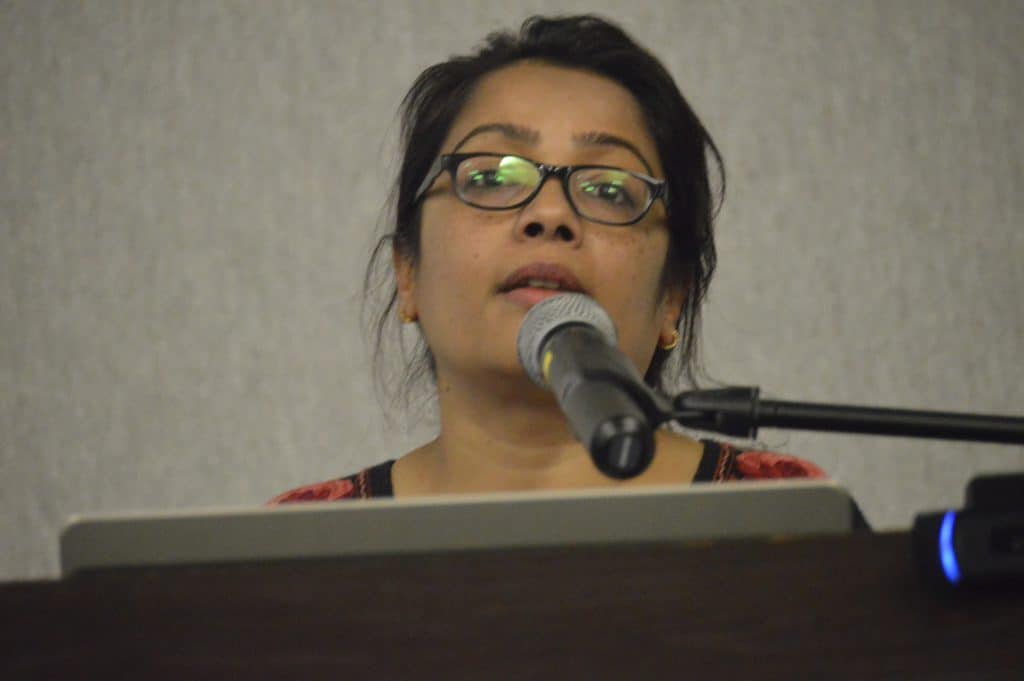
The right to food is a basic human right, yet an unacceptably large number of people continue to experience hunger and malnutrition. Scientists – including those at the DST-NRF Centre of Excellence in Food Security (CoE) – are hard at work looking for solutions through interdisciplinary research.
This was the takeaway message during a two day colloquium hosted by the Department of Women and Gender Studies (WGS) at the University of the Western Cape (UWC) on 29-30 July 2015. The “Food Politics and Cultures: Exploring Humanities Approaches to Food and Food Systems” colloquium brought together researchers from various academic disciplines to explore, share and debate interdisciplinary work to discover possibilities for humanities related research on food and food systems.
The two day colloquium ignited insightful perspectives and discussion about the importance of not discounting the complexities that human nature, social, economic and cultural factors; as well as religion, memory and identity, add to finding solutions to the challenges of malnutrition – including underweight and overweight – and insuring food security for all.
Dr Yvette Abrahams, as senior researcher based at WGS set the tone for the colloquium speaking about the effects of climate change on natural habitats and ecosystem and the role of indigenous language systems in finding solutions to food insecurity. She also highlighted the need incorporate a gendered perspective when seeking to understand the effects of climate change and food insecurity on livelihoods.
Emeritus Professor David Sanders of UWC’s School of Public Health and CoE-FS presented a grim outlook on food insecurity in South Africa, reflecting on statistics about the nutritional outcomes of South Africa’s children. According to Professor Sanders, stunting remains high while rates of breastfeeding are critically low. This is despite the known nutritional benefits of breastfeeding. Similarly, Professor Julian May, director of the CoE-FS spoke of the economic benefits of a healthy population against the economic ramifications of malnutrition.
Professor Vasu Reddy, Dean of Humanities at the University of Pretoria considered food as an object of culture and performance, contending that we need to understand the human condition in order to understand the consumption and over-consumption of food. Research conducted by Professor Thandi Puoane (UWC) suggests that culture has an on increasing rates of obesity among South African women. Important for researchers is to consider how to change perceptions in order to improve livelihoos and ultimately save lives.
Similarly, award-winning Cape Town based film-maker, Shelley Barry, used short narrative films that made use of food metaphors and imagery to tell stories about raced, gendered and sexualized bodies.
Day two carried on the momentum of discussion started on the first day with Professor Ashraf Jamal of the Cape Peninsular University of Technology reminding the audience of the importance of integrating natural sciences research with social science perspectives in order to address the challenges of nutrition and food insecurity in a holistic manner.
Other presentations included reviews of popular literature and the representation of food therein, as well as the representation of food in media and how this influences preceptions and even choices. University of Cape Town based Dr Signe Rousseau added that the public has a role to play in creating alternate representations of food through their role as “prosumers” – producers and consumers of media due to the proliferation of social media as a means of communication.
Similarly, Dr Arundhatie Kundal, a visiting researcher from India affiliated to the CoE-FS questioned the representation and glamorisation of “Western” food versus that of local street food. The latter she said, is often associated with poverty, despite the fact that the nutritional quality of some of the local food exceeds that of “Western” food products.
The colloquium forms part of Food Politics and Cultures Project headed by Professor Desiree Lewis, of UWC’s Women and Gender Studies Department. Food Politics and Cultures is a research capacity building project Funded by the Mellon Foundation through the CoE.
related Articles
Call for abstracts: Re-reading ‘Africa’ through food
Photo: Noahalorwu / Wikimedia Commons. Professor Desiree Lewis and the intra-institutional programme “Critical Food Studies: Transdisciplinary Humanities Approaches” invites interested…
Women at the centre of the food cycle – webinar on food...
A virtual dialogue looking at the important issues surrounding food security pre- and post-Covid-19, has revealed that women are at…
Poor have borne the brunt of “inappropriate” Covid-19 regulations, experts say
The loss of jobs and desperately needed revenue to the state resulting from Covid-19-related restrictions will negatively impact the critical…



